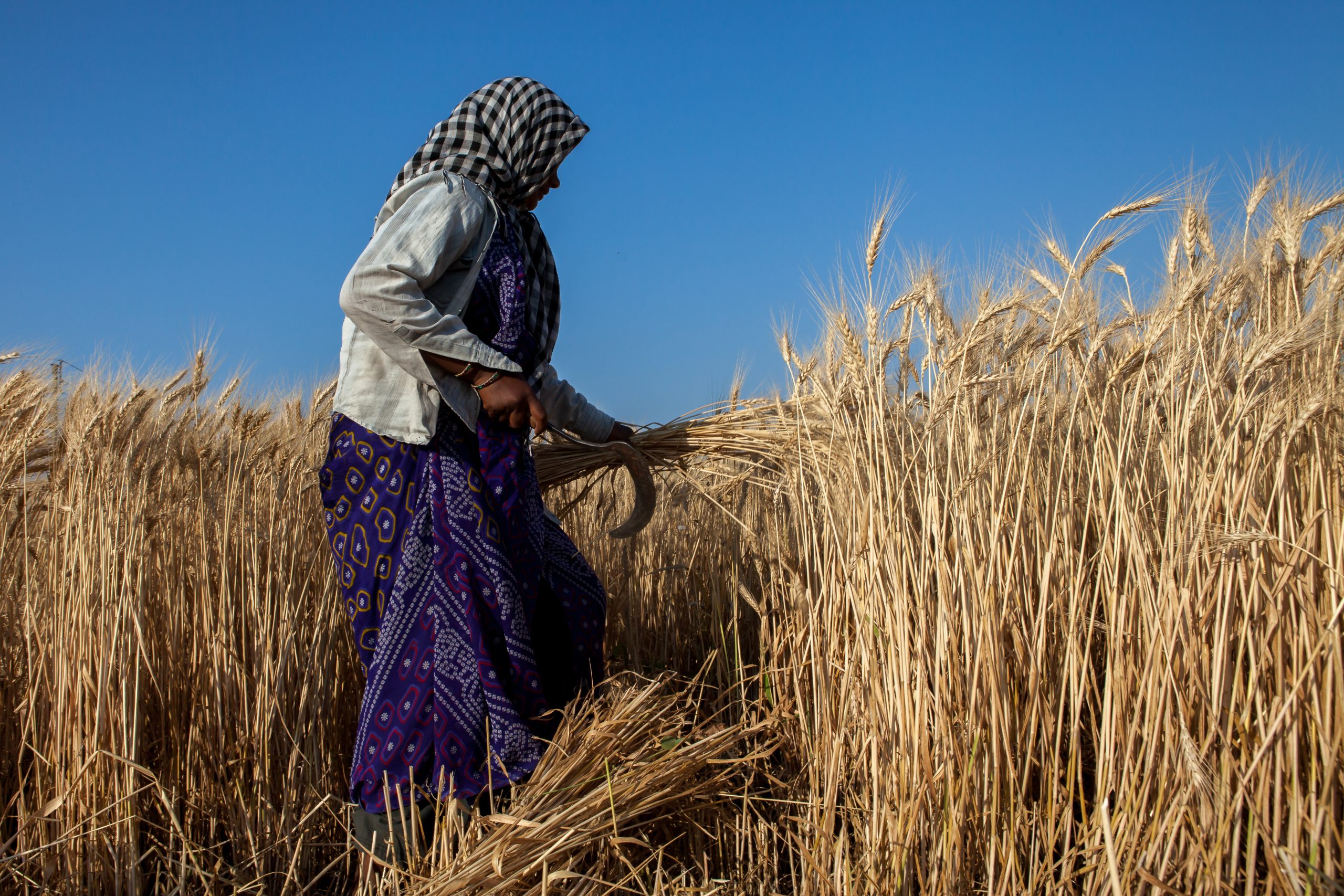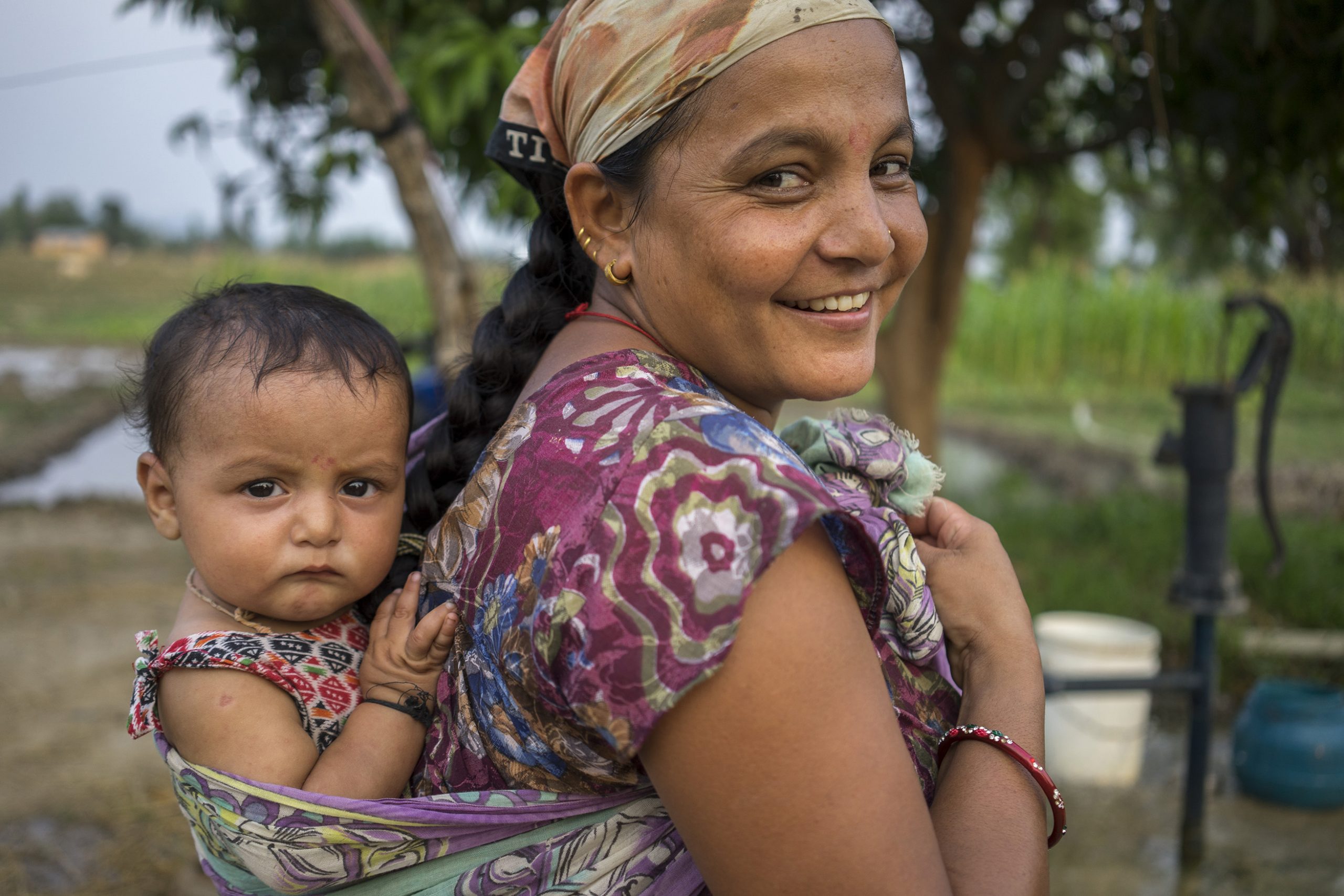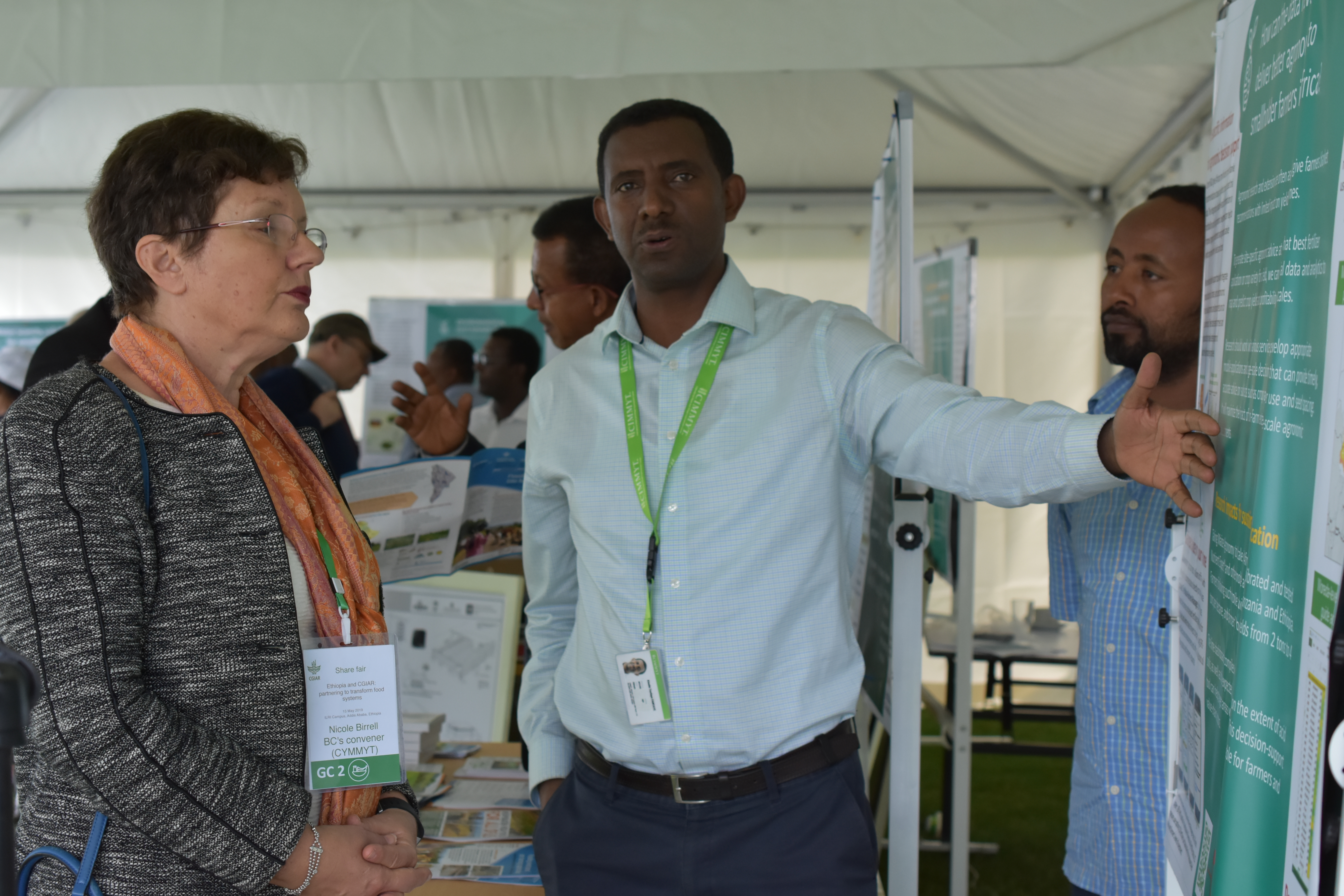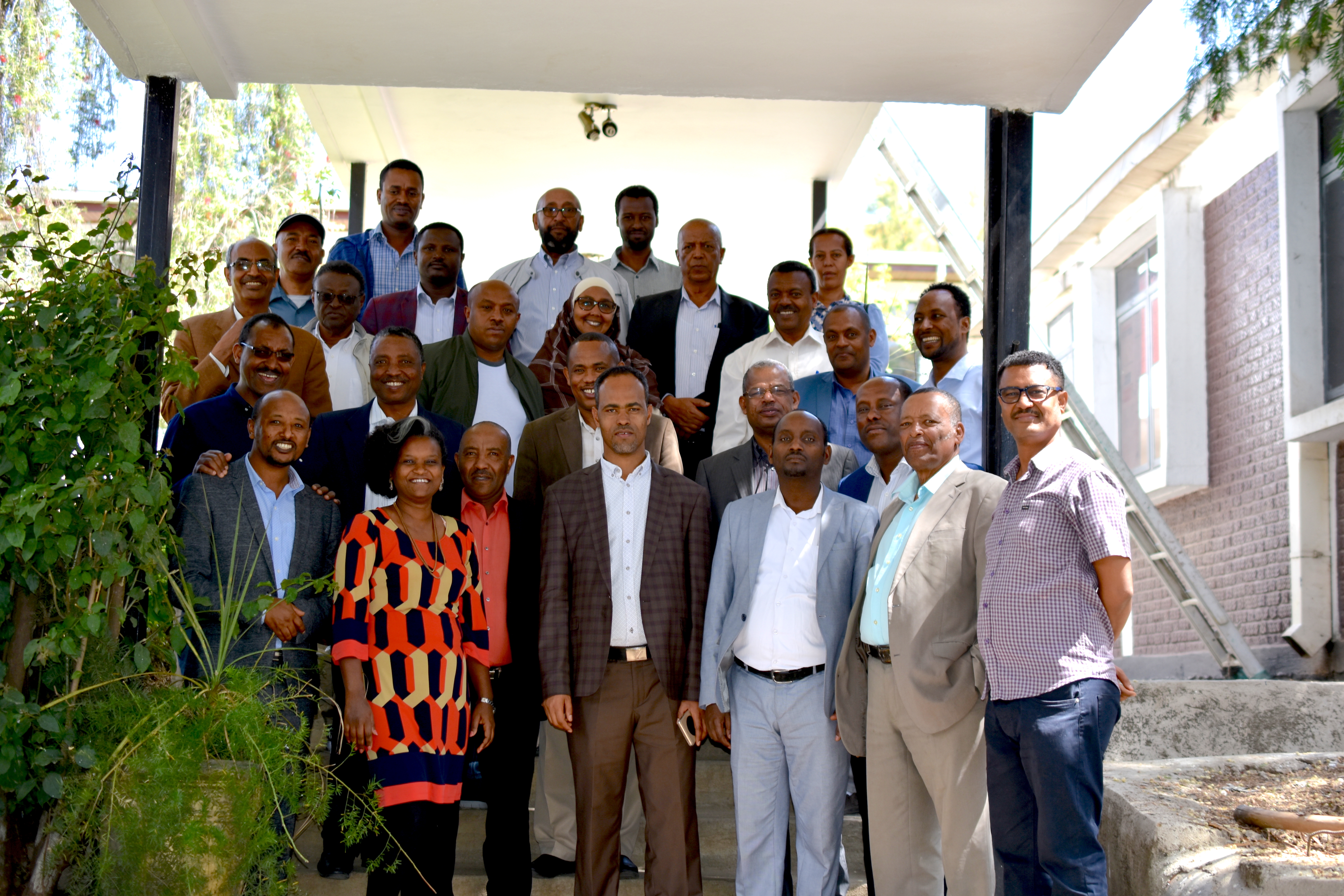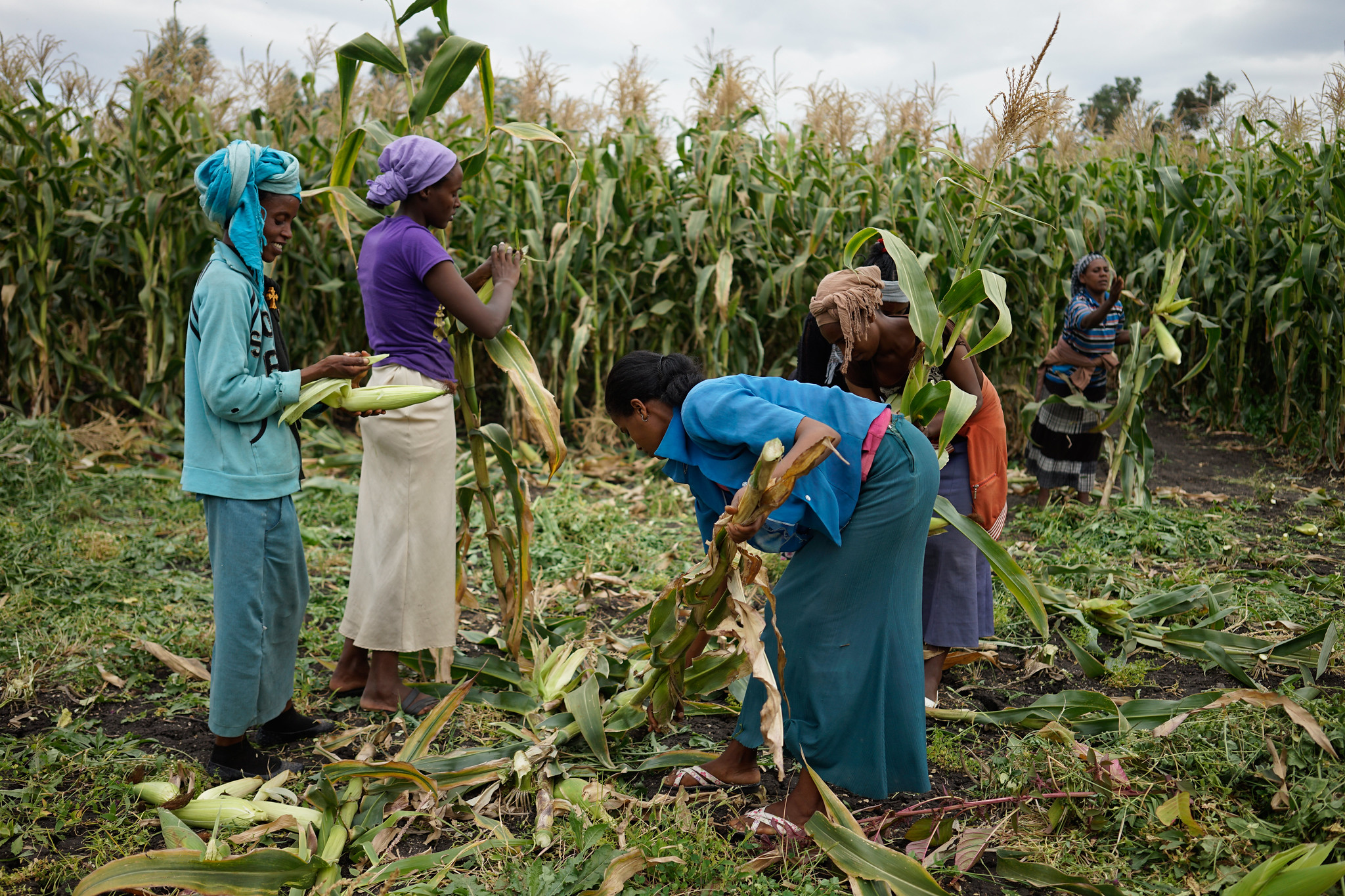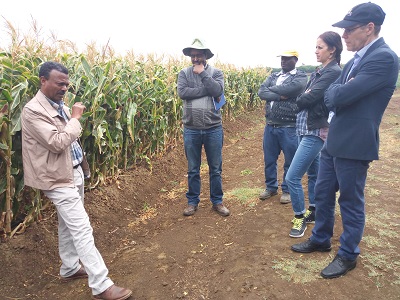Global Affairs Canada
New publications: Caste-gender intersectionalities in wheat-growing communities in Madhya Pradesh, India
 Gender equality, youth and social inclusion
Gender equality, youth and social inclusion
Study reveals gaps and interactions between caste, gender and agricultural decision-making.
Capturing a clearer picture
 Gender equality, youth and social inclusion
Gender equality, youth and social inclusion
Researchers, extension services, partners and policymakers can better support feminization of agriculture processes in the Indo-Gangetic Plains through improved research and recommendations.
Research, innovation, partnerships, impact
 Innovations
Innovations
Knowledge share fair highlights CGIAR contributions to the Ethiopian agriculture sector.
Sustaining the production and demand of Quality Protein Maize in Ethiopia
 Nutrition, health and food security
Nutrition, health and food security
As the Nutritious Maize for Ethiopia (NuME) project comes to an end, partners draw plans to extend its impact.
Seed companies are responsible for creating demand for quality protein maize
 Nutrition, health and food security
Nutrition, health and food security
Recently, the CIMMYT-led, Global Affairs Canada-funded, Nutritious Maize for Ethiopia project has led field visits for a number of high-level stakeholders.
Farmers in Ethiopia willing to pay more for quality protein maize
 Nutrition, health and food security
Nutrition, health and food security
In Ethiopia, 44 percent of children under the age of five experience impaired growth due to poor nutrition. Quality protein maize helps combat stunting and boosts nutrition in children who survive on a maize-dominated diet.
Women are the foundation for change in rural Ethiopia
 Gender equality, youth and social inclusion
Gender equality, youth and social inclusion
Community conversations, a human-centered approach, puts people in charge of their own development in maize-based communities in Ethiopia.
NuME: a key actor in agricultural innovation systems in Ethiopia
 Nutrition, health and food security
Nutrition, health and food security
A CIMMYT project was selected as a key actor in agricultural and rural innovation in Ethiopia by CDAIS.
CIMMYT and partners set the pace in maize and wheat research in Africa
 Capacity development
Capacity development
State-of-art research facilities leap Africa’s Agricultural potential through modern research.
Participatory approaches to gender in agricultural development
 Gender equality, youth and social inclusion
Gender equality, youth and social inclusion
For gender specialist Mulunesh Tsegaye participatory approaches are the best way of ensuring agricultural development projects are responsive to gender dynamics.
Quality Protein Maize – what’s in a name?
 Nutrition, health and food security
Nutrition, health and food security
Across Ethiopia, farmers bring a different dimension to the age-old tradition of naming children in symbolic and meaningful ways, by assigning a human name to Quality Protein Maize (QPM) that reflects its importance. In some parts of Oromia region, QPM is known as Gabissa, meaning builder, because it is believed to build bodies and make people strong. In the Amhara region, it is known as ‘Almi Bekolo’ or ‘Gembi bekolo, both names meaning building the body. QPM has gained its fame across Ethiopia, as an affordable and viable option to alleviate protein malnutrition and reduce animal feed costs thanks to the CIMMYT’s Nutritious Maize for Ethiopia (NuME) project and many national partners.
Ethiopian seed companies express interest in QPM, seek CIMMYT support
 Capacity development
Capacity development
Managers of private and public seed companies in Ethiopia have expressed interest to produce and broadly market quality protein maize (QPM) seed, provided that they get technical and other necessary support from the Nutritious Maize for Ethiopia (NuME) project.
Training to fill gaps in Ethiopia’s maize seed system
 Capacity development
Capacity development
The Nutritious Maize for Ethiopia (NuME) project recently organized a three-day training workshop on quality protein maize (QPM) seed production and quality control, as part of the project’s activities to enhance QPM seed production.
NuME organizes financial management workshop for partners
 Capacity development
Capacity development
CIMMYT’s Nutritious Maize for Ethiopia (NuME) project recently organized a half-day workshop to refresh the knowledge of financial officers from partner institutions on various accounting and reporting procedures, with specific reference to financial procedures that apply to projects funded by the Canadian Department of Foreign Affairs, Trade and Development (DFATD).
